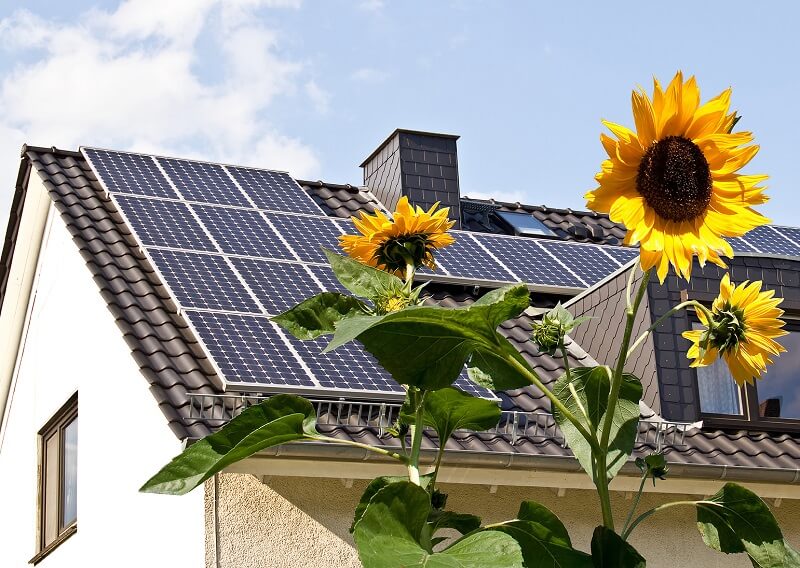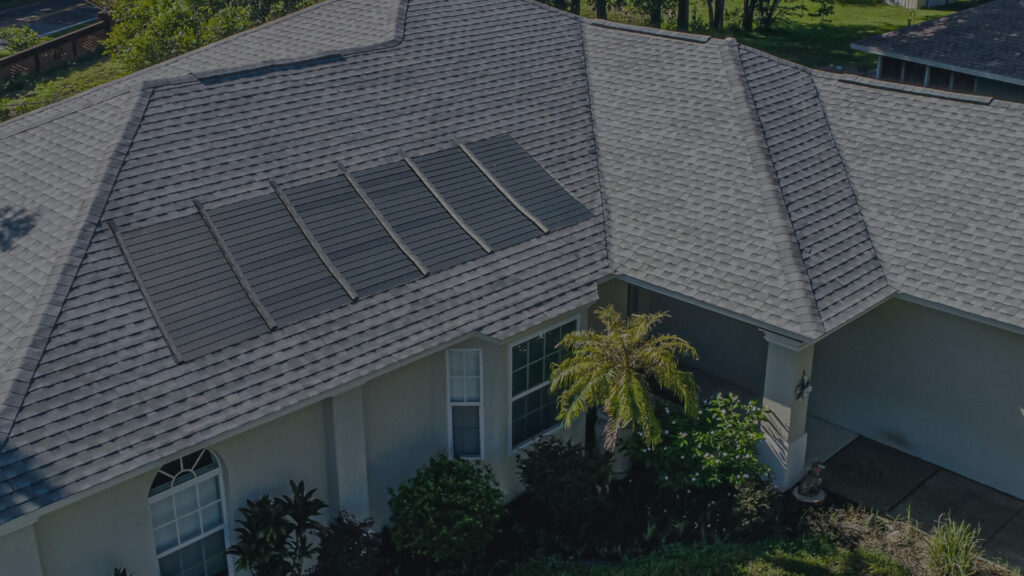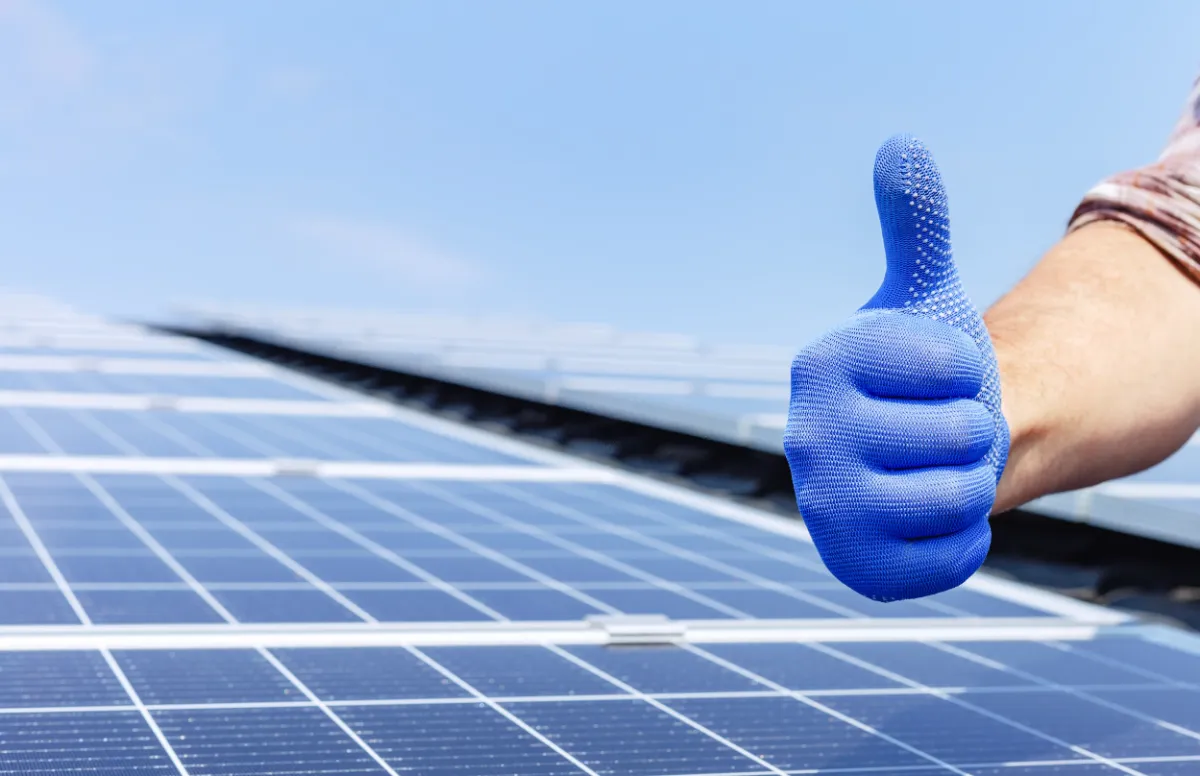Harnessing the power of the sun is not a new phenomenon. In fact, ancient civilizations, such as the Greeks, Romans, and Chinese, used mirrors and lenses to concentrate sunlight for lighting fires, heating water, and even lighting torches for religious ceremonies.
However, the history of using solar to power residential homes is fairly recent in historical terms. Now, as interest in conserving resources and reducing energy consumption has grown, property owners are increasingly turning to the sun to supply electricity to their homes and businesses.
What Is Solar Roofing?
As demand has increased, prices for solar options have declined and manufacturers have begun to offer more alternatives.
Today, homeowners looking to use the energy of the sun to power their homes can choose between installing traditional solar panels on their roofs, or they can choose solar roofing, which integrates the solar panels into the roof itself. Solar roofing is a newer option, but it is becoming increasingly popular due to its aesthetic appeal and durability.
Solar panels are typically made up of individual solar cells that are mounted on a frame. The solar cells are made of semiconductor material that converts sunlight into electricity. Solar panels can be installed on any roof that receives sunlight, but they are typically mounted on top of the existing roof.

This type of roofing is a newer technology that integrates solar cells into the roof itself. Solar shingles and tiles are made of materials that look like traditional roofing materials, but they also contain solar cells. Solar roofing can be a more aesthetically pleasing option than solar panels, as it blends in with the roof rather than standing out as a separate system. However, solar roofing is also more expensive than solar panels.
Why Choose Solar Roofing?
There are several compelling reasons to consider installing solar roofs:
Renewable Energy
Solar roofing allows homeowners to harness the sun’s energy, a clean and renewable source of power. By generating electricity from sunlight, it reduces reliance on fossil fuels, thus reducing carbon emissions and mitigating climate change.
Energy Cost Savings
Solar energy can help homeowners save on their monthly electricity bills. By generating their own electricity, homeowners can reduce or eliminate their dependence on the traditional power grid, leading to long-term cost savings.
Environmental Benefits
Solar energy is a clean and sustainable source of power. By installing solar roofing, homeowners contribute to a greener environment by reducing their carbon footprint and promoting the transition to a low-carbon energy system.
Increase Property Value
Solar roofing installations can increase the value of a property. Studies have shown that homes equipped with solar panels tend to sell at higher prices compared to those without solar installations. According to MarketWatch, solar power is viewed as an attractive feature for environmentally conscious homebuyers and can be seen as an investment that adds value to the property.
Better Aesthetics Compared With Solar Panels
Solar roofing is often seen as a more aesthetically pleasing option than traditional solar panels. This is because solar shingles and tiles are designed to blend in with the roof, rather than standing out as a separate system. This can be a major consideration for homeowners who are concerned about the appearance of their home.

In addition, solar roofing is increasingly becoming available in a wider range of colors and styles, so homeowners can choose a system that matches the look of their home.
Things to Consider Before Installing Solar Roofing
If you are considering the installation of solar roofing, it is essential to consider the following factors:
Roof Suitability
Assess whether your roof is suitable for solar panel installation. Factors to consider include the age, size, shape, and slope of your roof. Ideally, south-facing roofs with a slope between 15 and 40 degrees perform best, but other orientations and slopes may still be suitable.
Solar Potential
Assess the solar potential of your location. Consider factors such as the amount of sunlight your roof receives, potential shading from nearby objects, and the local climate. Several online mapping services and tools can provide estimations of solar potential based on satellite data, but consulting with a solar installer can provide a more accurate assessment tailored to your specific situation.
Energy Needs
Evaluate your electricity needs to determine the size and capacity of the solar system required. Review your past electricity bills and consider any anticipated changes in energy consumption, such as adding energy-intensive appliances or an electric vehicle. Understanding your energy needs helps in designing an appropriately sized solar system.
Financial Considerations
Explore the financial aspects of solar roofing. Research different financing options, such as purchasing the system outright, obtaining a solar loan, or leasing arrangements. Each option has its advantages and considerations, including upfront costs, tax incentives, ownership, and maintenance responsibilities.
Permitting & Regulations
Understand the local permitting and regulatory requirements for solar installations in your area. Work with your solar installer to ensure all necessary permits are obtained and inspections are scheduled. The timeframe for obtaining permits and completing the installation process may vary depending on local regulations.
Maintenance & Warranty
Consider the maintenance requirements and warranty options for your solar system. Solar roofing is generally low-maintenance, but periodic cleaning and inspections may be necessary to ensure optimal performance. Additionally, review the warranty terms and coverage provided by the manufacturer or installer.
Professional Installation
Solar roofing installation should be carried out by qualified professionals who have experience in solar installation and roofing services.
Incentives & Tax Credits
Depending on the location, homeowners may be eligible for various incentives and tax credits when installing solar. These incentives can help offset the upfront costs of installation and make solar energy more affordable.
By considering these factors and seeking professional guidance from a professional roofer near you, homeowners can make informed decisions about installing solar roofs. Solar energy offers numerous benefits, but it is important to ensure that it aligns with your specific circumstances and goals.
Stronghold Roofing & Solar
If you are interested in exploring solar roof for your home, contact the best roofing company in Florida – Stronghold Roofing & Solar. As proud installers of GAF’s Timberline Solar™ roofing, our team of experts can help you make the best decision for your home.










